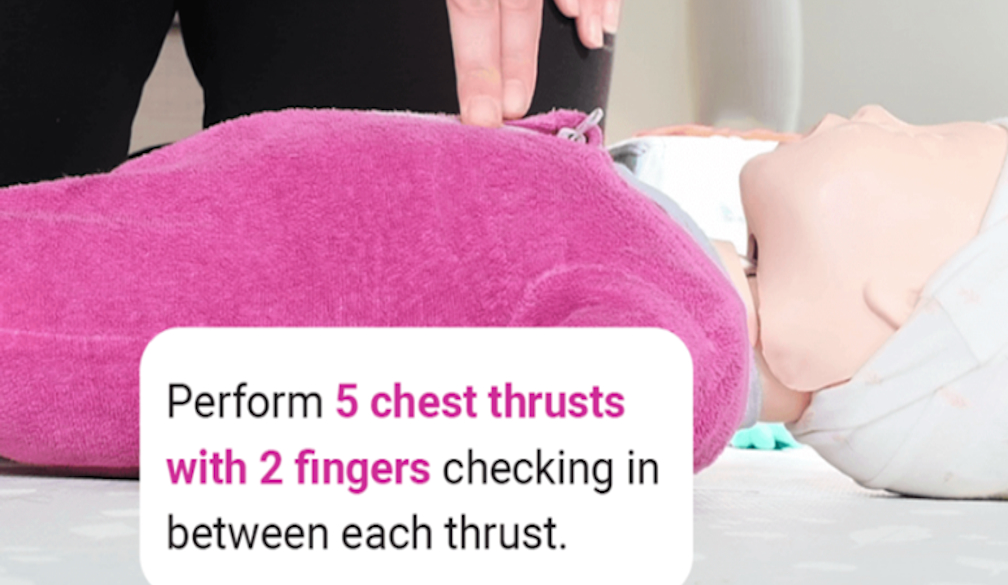The Essential Guide to Baby First Aid for New Parents
- Written by MISS.com.au

Becoming a parent is an incredible journey filled with joy, wonder, and, naturally, a bit of anxiety. One of the best ways to alleviate some of that anxiety is by being prepared for any situation, especially when it comes to the health and safety of your little one. That's where baby first aid comes in.
Why Baby First Aid is Crucial
Babies are curious by nature, which can sometimes lead to accidents and emergencies. Knowing how to respond in these situations can make all the difference. From minor incidents like cuts and bruises to more serious situations like choking or sudden illness, being equipped with baby first aid knowledge is invaluable.
Baby first aid is an essential skill for parents, as it equips them to handle emergencies that may arise in their child's early years. One of the most critical situations a parent can face is choking. Would you know how to care for a choking baby? Infants and toddlers are especially prone to choking due to their natural curiosity and tendency to explore the world by putting objects in their mouths. Understanding how to quickly and effectively respond to a choking incident can be life-saving. This involves knowing how to recognize the signs of choking, such as coughing, gagging, or inability to cry or breathe, and being able to perform age-appropriate first aid techniques like back blows and chest thrusts. By being prepared for such emergencies, parents can ensure the safety and well-being of their little ones.
Introducing Life Saving First Aid's Baby First Aid Course
Recognizing the need for specialized first aid training for new parents, Life Saving First Aid has developed a comprehensive baby first aid course. This course is tailor-made for first-time parents, providing them with the essential skills and confidence to handle any emergency situation involving their baby.
Course Highlights:
- Instructor-Led Training: Learn from Ishtar Odicho, a seasoned workplace trainer with a wealth of experience in life-saving techniques.
- Lifetime Access: Once you enroll, you have lifetime access to the course materials, ensuring you can refresh your knowledge anytime.
- Practical Skills: The course covers everything from foundational knowledge to advanced scenarios like anaphylaxis and drowning.
The Importance of Choosing the Right First Aid Course
Not all first aid courses are created equal, especially when it comes to infant first aid. It's crucial to choose a course that's specifically designed for babies, as their physiological responses and needs differ significantly from adults. Life Saving First Aid's baby first aid course is a perfect example of a course tailored to meet these specific needs.
Real-Life Testimonials from New Parents
Don't just take our word for it. Here are some testimonials from new parents who have completed the course:
- Emma W., Sydney: "The practical skills and knowledge I’ve gained have made me feel more prepared and confident as a new mother."
- Sophia L., Melbourne: "The course was incredibly informative! I feel more confident in my ability to handle any situation with my baby."
- Jessica B., Gold Coast: "This course is a blessing! It’s enlightening and practical, and I feel more confident and prepared to face any emergencies involving my baby."
Empowering Parents for a Safer Future
By enrolling in a baby first aid course, you're not just learning life-saving skills; you're also joining a community of like-minded parents committed to the safety and well-being of their children. It's an empowering step that can bring peace of mind in the midst of the beautiful chaos of parenthood.
Being a first-time parent is an exciting journey, but it comes with its share of challenges. Equip yourself with the knowledge and skills you need to ensure your baby's safety by enrolling in a baby first aid course today. Your child's well-being is worth it.
Remember, when it comes to your baby's safety, you can never be too prepared. Take the first step towards a safer future for your little one by signing up for Life Saving First Aid's baby first aid course now!